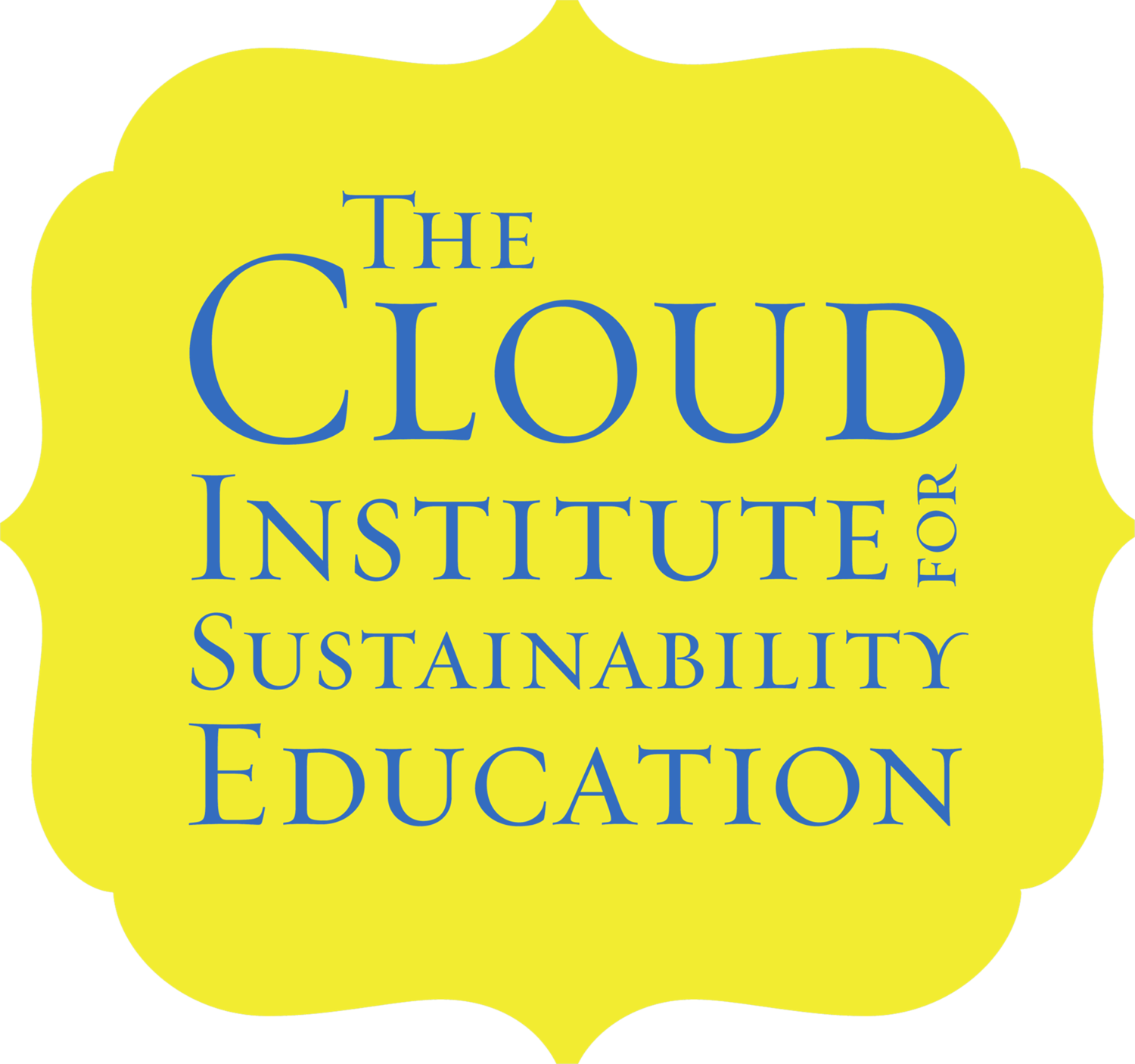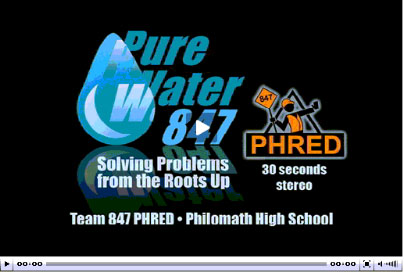NJ Learns: Making Bigger Connections Over Time
/By Lori Braunstein
As a member of the 2008 inaugural class of NJ Learns, forty other people and I from across the state spent a total of 8 days learning how to talk to my community about sustainability. Because of my role as community leader, in the years since, I’ve spent time crafting my own skill at sharing the concepts of Education for Sustainability more informally. In the last three years, I've used NJ Learns tools in my interactions with community members, elected officials, senior citizens, students and others. The variety of audiences to whom I’ve presented hasn’t just allowed me to tailor my presentation skills, it’s also been fundamental to creating a shared understanding about sustainability across these distinct audiences, opening pathways for me and for them to make more connections, find common interests and work together toward our shared goals.
Profound Connections
/By Chris Bickel
I graduated from the New Jersey Learns program in 2009. I didn’t know it then, but my understanding of sustainability as it related to environmental literacy would drastically change. I’ve moved away from compartmentalizing my ideas and actions, seeing instead their inter-connections and interdependence in a more fluid way. Now, I look for broader and higher level ideas and stewardship. For example, early on I co-chaired two large environmental fairs and a compact fluorescent bulb distribution in the township of Livingston, NJ. I thought each separate event was a success. I “checked” it off my list and told myself, “You are doing your part, Chris.” However, NJ Learns taught me to think “upstream” and go to the source of the problem. I decided to bring my learning back to my position as a Supervisor of Social Studies for grades K-12 in Livingston NJ.
Fishing for Cognizance - EfS... An Intern’s Perspective
/Learning About EfS From An Intern’s Perspective
“Well, I knew nothing about sustainability at all!” Nozomi Sakata explains when asked how she decided to apply for an internship at The Cloud Institute a few weeks ago. It turns out that she is simply graceful at stumbling. Happening on the Cloud Institute through an email from her school’s internship program, Nozomi was mainly interested in the fact that it produced innovative curriculum platforms; the Institute’s focus in Education for Sustainability presented, more than anything else, a foreign concept to explore. In that same happenstance way, she recently happened to see that Jaimie Cloud was presenting a two-day workshop called “The Essentials of Sustainability Education Workshop” at Columbia University Teacher’s College, where Nozomi is a student. The opportunity was, she explains, “a chance to learn about the ideology of EfS from an introductory perspective
Nozomi isn’t an anomaly. All the interns here at the Cloud Institute have different motivations and reasons as to why they were drawn to this office, providing an interesting window into the many facets of EfS.
Read MoreThe Key Is Bees
/Reflection on the EfS Curriculum Design Studio
/What is Sustainability?
/Pencils : A Classroom Commons
/This 3 minute video podcast entitled, Pencils : A Classroom Commons, was produced by Betsy Kates , a teacher in our PNW BOCES EfS Curriculum Design Project , and her son Gabe. Betsy got very excited about the work of educating for sustainability—particularly passionate about the EfS Standard, “Healthy Commons”, and decided to produce this video about the lessons her students learned by studying the Commons through their use of pencils in the classroom.
Marla Gardner, Director of the The BOCES Curriculum Center got very excited about this podcast as a great way to communicate what the EfS Standrds are all about, and decided we should have a podcast for every one of the Cloud Institute’s EfS Standards. She offered mini grants to all the teachers in the project to produce additional podcasts. Three have been produced so far. Click here to check them out.
Stayed tuned for more…
Two Video Animations Demonstrate EfS Attributes
/These video animations were designed and produced by high school students in the Philomath High Robotics Engineering Division (PHRED) at Philomath HS in Philomath, Oregon. These two 30 second animations are from PHRED Team 847. PHRED Team 847 is sponsored by local foundations, corporations and the Lions Club.
Operation Gyre is an elegant 30 second demonstration of several EfS attributes including authentic curriculum and assessment, the entrepreneurial mindset, an understanding of the materials cycle principle and three of our enduring understandings: “A Healthy and Sustainable Future is Possible”; “Live by the Natural Laws” and “Read the Feedback”.
Pure Water 847 is another elegant 30 second demonstration of authentic curriculum and assessment, the entrepreneurial mindset, Biomimicry and “A Sustainable Future is Possible.” In addition, the animations illustrate a robust use of technology in the classroom (Autodesk 3ds Max).
Education for Sustainability: Bridges and Solutions from an Intern’s Perspective
/Getting the word out! Creating Awareness for A Sustainable future!
/Hands Are for Helping, Not Hurting
/First Graders Resolve Social Conflict Using Systems Thinking
/There is nothing more inspiring than being able to resolve conflict in our relationships with one another. Respecting one another and our differences and recognizing our interdependence is a core attribute of Educating for Sustainability. The result is happy, diverse, successful, and healthy societies.
The Waters Foundation is an organization that integrates systems thinking tools into classrooms and schools. Learners are provided with the tools to develop solutions that break unsustainable patterns in our thinking and behavior. Watch in amazement as a group of 1st grade boys use a systems causal loop diagram to identify social problems in their playground and resolve their conflict with one another!
Three 1st grade boys use feedback loops to help define and solve problems they were having on the playground.
Trevor Day School raises money for EfS!
/We love to feature the beautiful work of our clients! This video is a great example of the commitment our clients have to Education for Sustainability (EfS)!
Trevor Day School, located in New York City, created this four minute fund raising video for EfS (with a quick interview from a familiar face)! They raised over $100,000 at an Auction Night for the school! Keep up the incredible work!
Trevor Day School - EfS Fundraiser Video from Cloud Institute on Vimeo.
From the Field— “I Matter! A Systems Approach to 3rd Grade Field Trips”
/Jessie-Ruth Corkins: Vermont Sustainable Heating Initiative
/When thinking of the young people who continue to inspire EfS work, Jessie-Ruth Corkins comes to mind.
Jessie-Ruth is the core leader of the Vermont Sustainable Heating Initiative (VSHI), a group of students representing 200-plus youth from 26 high schools. In 2004, Jessie-Ruth rose to a teacher’s challenge to create an energy conservation plan; her proposal to transition the school’s oil boiler to a woodchip boiler fueled by local products was adopted by the school board. After learning that Vermont does not have the forest capacity to heat the population with wood alone, VSHI wanted to facilitate the transition to heating with locally produced biomass energy crops.
Jessie-Ruth and VSHI wrote a persuasive statewide plan to develop Vermont’s 100,000 acres of underutilized land to grow prairie grass that could be pelletized and provide all of Vermont’s home heating needs. VHSI estimates the program’s financial returns could eventually reach up to $1.3 billion. However, Jessie-Ruth believes the returns will be greater than just money. “Locally produced energy will develop a greater sense of community in Vermont towns,” she said. “Our fuel will come from our own backyards and will offer a stable and affordable price to all Vermonters.” VSHI is currently running a pilot project in which it is transitioning low-income family homes in the community to pellet stoves.




